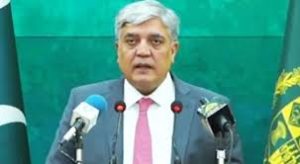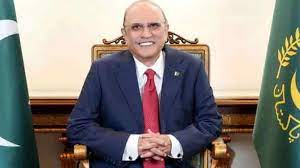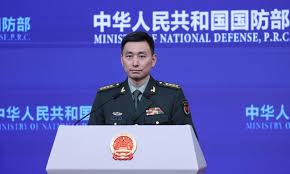UK inflation worries tick up after big-spending budget and Trump win

London: Just when Britain seemed to be moving beyond its inflation problem, the new government’s spending splurge and the risk of a global trade war triggered by U.S. President-elect Donald Trump’s tariff plan are threatening to extend it.
British inflation peaked above 11% two years ago after the outbreak of the Ukraine war, the highest among the world’s big rich economies. It then took longer to fall than in many other countries, in part because of a shortage of workers following Britain’s exit from the European Union.
No one expects another double-digit price leap. But the Bank of England raised its inflation forecasts for the next three years after the Oct. 30 budget, which increased taxes on employers, threatening to push up prices and wages .
Trump’s election win then prompted investors to cut further their bets on BoE interest rate reductions next year.
That could pose an additional challenge to Prime Minister Keir Starmer’s promise to voters in July’s election that he will turn Britain into the fastest-growing Group of Seven economy.
“We think the UK budget and Mr. Trump’s election will boost UK inflation and rates,” consultancy Pantheon Macroeconomics told clients in a note on Thursday.
The hefty public spending increases in the budget and their expected short-term boost to growth initially prompted investors to price in three BoE rate cuts by the end of 2025, down from four previously.
As Trump announced hard-line nominations for top jobs in his administration, those bets this week dwindled to just two cuts by the end of 2025, compared with five expected from the European Central Bank for the struggling euro zone.
Under one scenario, inflation in Britain and beyond could be softened if China’s exports to the U.S. are hammered by Trump’s tariffs, lowering their price in other markets.
But if Britain and other countries are hit by tariffs too and retaliate, the damage to global supply chains could mean slower growth and faster-than-expected inflation.
Rob Wood, chief UK economist at Pantheon, said the BoE, like other central banks, was only just getting inflation under control and would not be able to dismiss the impact of trade tariffs as a one-off, given still strong growth in wages.
“They can’t risk saying this is a transitory shock and we’re going to look through it. It means slower cuts to interest rates than there would have been,” he said.
Wood expects UK inflation to rise to 3% in the third quarter of 2025, above the BoE’s forecast of 2.8%.
Many economists are expecting the BoE to cut rates by more than is being priced by investors at the moment.
But Ahmet Kaya, at the National Institute of Economic and Social Research, a think tank, said his forecast for four quarter-point cuts to rates between now and the end of 2025 faced a significant risk from higher tariffs which could cause the BoE to “turn into a hawkish stance”.
Britain’s headline inflation rate has fallen sharply in recent months and dropped below the BoE’s 2% target for the first time since 2021 in September when it eased to 1.7%.
But BoE officials say they are not declaring victory as underlying pressures are still strong.
The central bank has so far cut rates by half a percentage point from their 16-year high of 5.25%, a more cautious approach than in the euro zone and the United States.
BoE Chief Economist Huw Pill said on Tuesday that Britain appeared to be lagging other countries in its recovery from the pandemic and energy price shocks.
Brexit and the loss of many workers who dropped out of labour market during the pandemic have kept wage growth too strong for the BoE’s liking.
Another BoE rate-setter, Catherine Mann, warned on Thursday that “political developments across the Atlantic” could hurt output and inflation in the UK and “global shocks and spillovers therefore should not be underestimated”.
Pill and Mann are among the most hawkish of the BoE’s top officials. But Governor Andrew Bailey last week stressed rates are likely to fall only gradually, having spoken about the possibility of faster cuts in October.
In a speech on Thursday, Bailey made clear his concerns about protectionism.
“The picture is now clouded by the impact of geopolitical shocks and the broader fragmentation of the world economy,” Bailey said. “Amidst the important need to be alert to threats to economic security, let’s please remember the importance of openness.”





